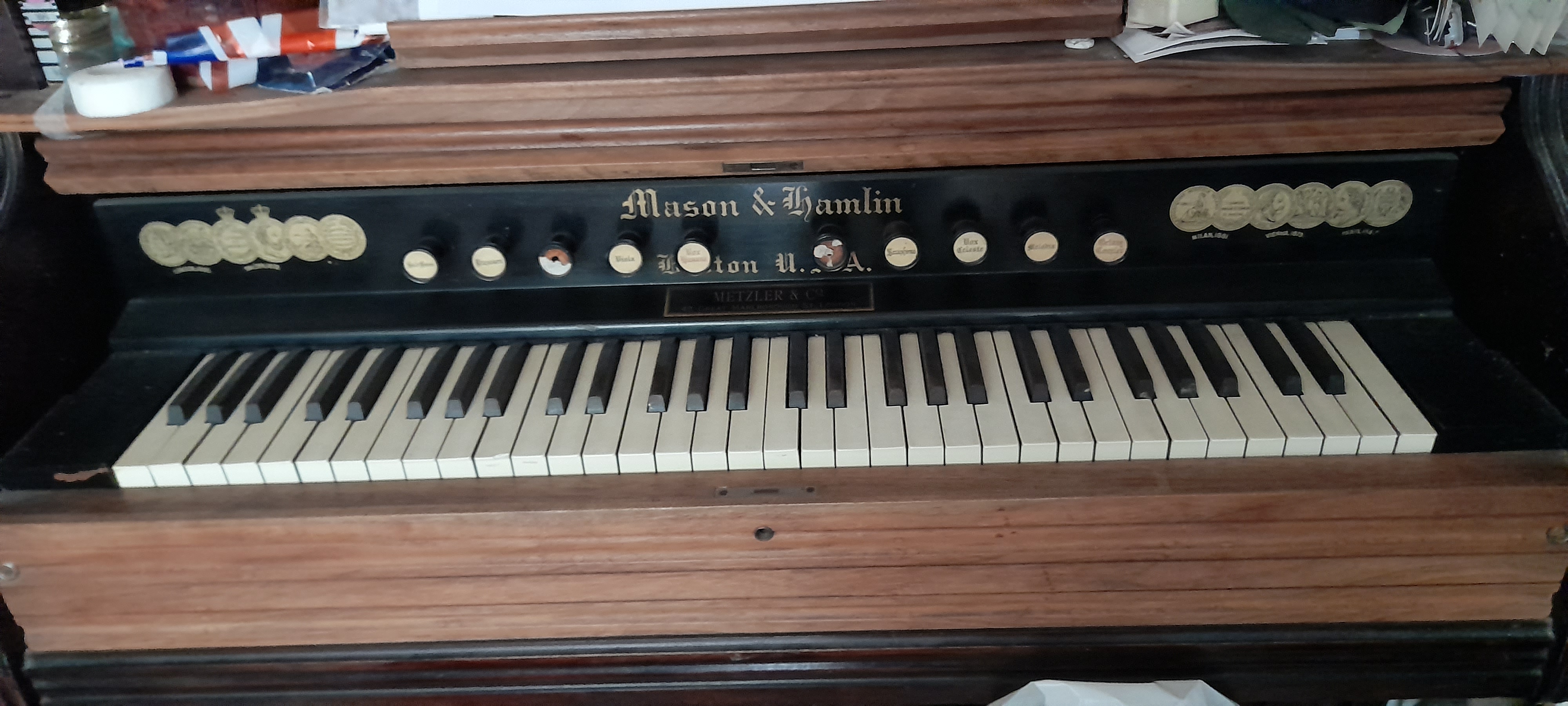
The organist either leads or accompanies the choir, which is one of the more commonplace ways for everyday parishioners to get involved in their church and their spirituality as a whole. (I say “almost never” here not because I have encountered any organ duets, but because I assume that such a composition must have been written and performed at least once, if only for the novelty of accomplishing something never before accomplished.) Still, though they are largely autonomous, most organists play similar roles within their communities-usually Christian churches. All this contributes to a group of people who do get together-to teach, to learn, to chat, and do all the other things social niches are want to do-but who almost never play their instrument of choice with each other. The instrument, in its unparalleled frequency range and variety of tone, is specifically designed to replicate the effect of many, many separate instruments, thus making the pairing of two different organs redundant and overwhelming. Even in classical organ pieces (as opposed to organ pieces with specific religious functions) there is never a need for more than one organ.

Other instruments may be added in, but there is rarely a need for two organists to be in the same place at the same time. Organs as they are most often utilized-as the leading instrument in the music of a religious service-usually act as accompaniment for a choir or cantor. This is not to say that the organ is usually a solo instrument. Not only is a pipe organ fixed to a specific location, and not only is the console often isolated or hidden from view, but it is played, more often than not, without the accompaniment of any other instrument. I suspect this is due in part to the nature of the organ as an instrument.
#What is the age of my estey organ drivers
In fact, no one has even referenced the thousands and thousands of organists around the world as anything more than a vague cloud of people who exist mostly in solitude, connected only by their profession, acknowledging each other only when they cross paths, like bus drivers waving at each other as they drive in opposite directions down a busy street. For more information, visit have yet to meet anyone who would describe the people surrounding pipe organs as part of a specific subculture. In 2020, he was named artist in residence at the Harvard (Mass.) Historical Society, where he gives monthly concerts.ĭoors open at 11:45 a.m. A member of the American Guild of Organists and the Organ Historical Society, he serves as organist at a number of churches. Klein has given performances in both the U.S. Henry Mason, director of music at Immaculate Conception Parish in Worcester, Mass. With a background in early music and keyboard studies since the age of 4, he took on the organ at age 12. He first found his love for the organ after hearing the instrument in Europe while traveling with his family when he was very young. Klein, a senior at Nashoba Regional High School in Bolton, Mass., plans to study organ performance in college.

“One thing I love about this organ is the extremely warm and lush string division (the pipes that are meant to imitate a string orchestra) which was something notable of organs of this era, especially those of the Estey Company,” he says. He looks forward to showcasing a varied program that will feature the multiple color ranges of the organ.

“That was my last public in-person performance, given the pandemic - so it’s great to be back!” Klein performed on the Estey organ in 2020 during cold, snowy weather - “but yet, there was a large crowd, and it turned out to be a super performance,” he recalls. Bach, Felix Mendelssohn, Eugène Gigout, and others. In this recital, Klein, age 17, will showcase music from around Europe, from the Renaissance to Modern musical periods, including work of Grayston Ives, Johann Gottfried Walther, J.S. “Audiences are invited to bring lunch, find a comfortable spot, and become immersed as the music fills the acoustically exceptional hall,” the event organizers write. 6, at noon continues the arts venue’s monthly live Lunchtime Organ Series, held every first Wednesday. BRATTLEBORO-Epsilon Spires will once again present Gavin Klein on the historic Estey 300 pipe organ in the Sanctuary at 190 Main St.


 0 kommentar(er)
0 kommentar(er)
